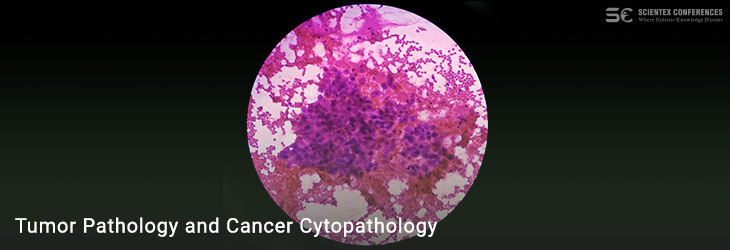Track: Tumor Pathology and Cancer Cytopathology

The "Tumor Pathology and Cancer Cytopathology" session promises to be an engaging and informative exploration of the critical role pathology plays in modern oncology. By understanding the detailed characteristics of tumors at the cellular and molecular levels, clinicians and researchers can develop more targeted and effective cancer therapies, ultimately improving patient outcomes. This session will cover key areas such as molecular pathology, histopathology, tumor grading and staging, and the role of cytopathology in cancer care.
Molecular Pathology focuses on the study of genetic mutations and molecular alterations that drive the development of cancer. This part of the session will highlight how advancements in molecular pathology are transforming cancer diagnosis and personalized treatment.
Histopathology segment will also highlight the importance of this technique in tumor staging and grading, which are critical for determining the cancer aggressiveness and guiding treatment strategies.
Neoplasms: Benign and Malignant Tumors sub-session will explore the characteristics of neoplasms, focusing on clinical and pathological differences between benign tumors, which are non-cancerous and malignant tumors, which are cancerous and have the potential to invade surrounding tissues and metastasize.
Tumor Staging and Grading segment will explain how these classifications are used to guide cancer treatment decisions, predict outcomes, and assess the need for adjuvant therapies.
Carcinoid Tumors, a subset of neuroendocrine tumors so this part of the session will focus on the pathology and clinical features of carcinoid tumors, including their locations and the role of surgical and medical management.
Biopsy and Cancer Surgery segment will discuss the various biopsy techniques, such as fine-needle aspiration, core and surgical biopsy, and their roles in diagnosing and staging cancer.
Cytopathology discussion will also highlight the growing importance of cytopathology in early cancer detection and minimally invasive diagnostics, which is particularly valuable in guiding initial treatment decisions.
Scientific Highlights
- Cancer Research Therapy and Autoimmune Diseases
- Cancer Biology and Biomarkers
- Types and Causes of Cancer
- Hematology in Cancer
- Organ Specific Cancer
- Cancer: Awareness, Lifestyle and Nutrition
- Oncology Subspecialties
- Advancements in Cancer Imaging Technologies
- Cancer Genomics and Epidemiology
- Cancer and Immunology
- Tumor Pathology and Cancer Cytopathology
- Cancer Pathophysiology
- Neuro and Radiation Oncology
- Stem Cell, Gene Therapy and CAR-T Cell Therapy
- Prevention and Palliative Care in Cancer
- Rehabilitation of Cancer Survivors
- Cancer Screening and Diagnosis
- Clinical Trials of Cancer
- Cancer Treatment and Traditional Therapies
- Complementary and Alternative Cancer therapy
- Artificial Intelligence in Cancer Research
- Future Technology in Oncology
- COVID-19 and Its Impact on Cancer


